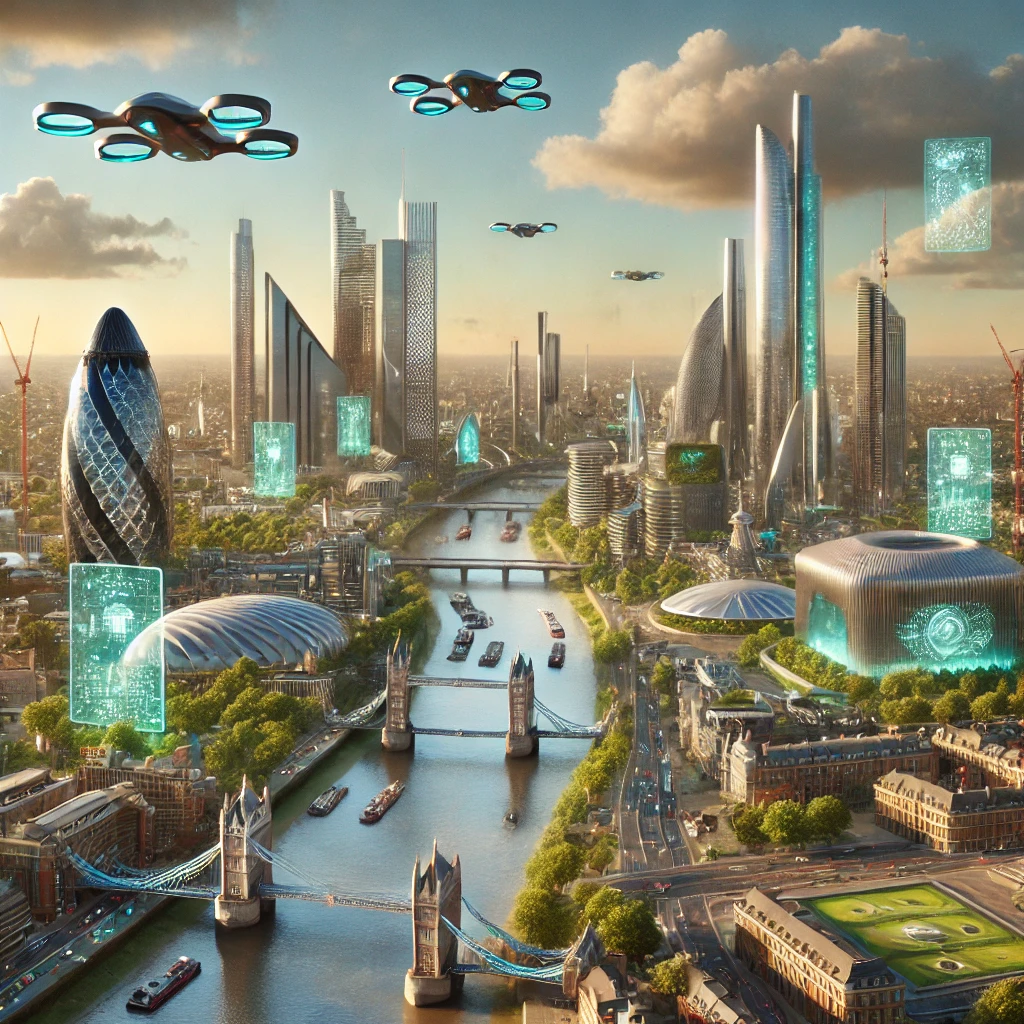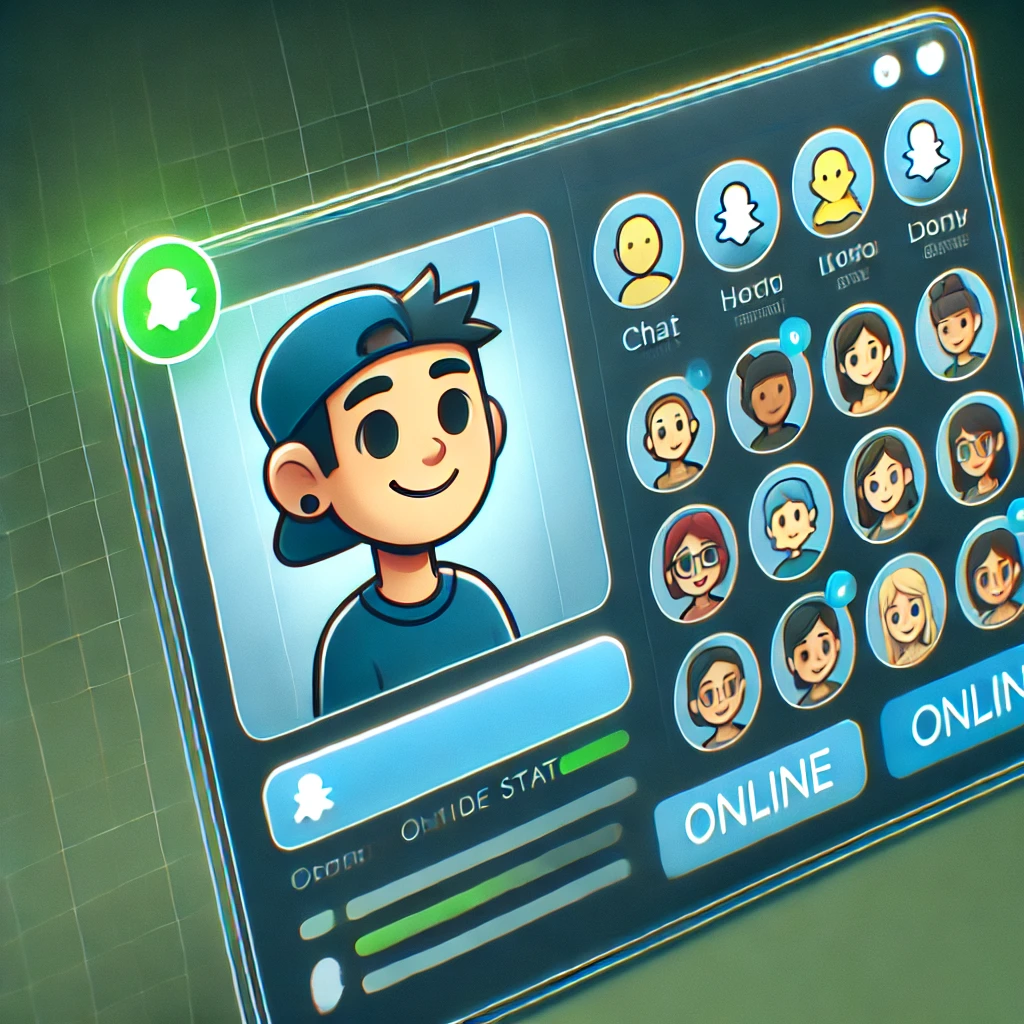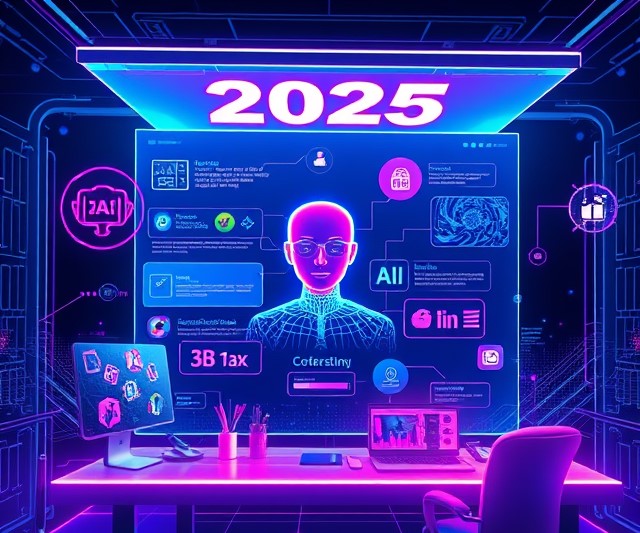The year 2035 is fast approaching, and with it, the promise of transformative changes that could redefine our lives, industries, and even the planet. The pace of technological progress, societal shifts, and environmental challenges will shape the world in ways that might seem unimaginable today. So, what does the future hold? Let’s explore what the world could look like in 2035.
1. A Technologically Advanced World
By 2035, we will be living in a world dominated by Artificial Intelligence (AI) and cutting-edge technologies. AI will not just be a tool but a partner in every aspect of life. From personal assistants to highly intelligent machines capable of performing complex tasks, AI will be woven into the fabric of society. Machines might even possess general intelligence, making them versatile across multiple industries like healthcare, education, and finance.
Quantum computing will likely be a reality by 2035, solving problems that are beyond the reach of current technology. This leap in computing power could lead to breakthroughs in fields such as cryptography, drug discovery, and materials science, unlocking a world of possibilities we can only dream of today.
Moreover, autonomous systems such as self-driving cars will revolutionise transportation, making roads safer, reducing traffic congestion, and even transforming how we design our cities.
Extended Reality (XR), including virtual, augmented, and mixed reality, will redefine how we work, socialise, and entertain ourselves. By 2035, virtual spaces may become the norm for collaboration, and we could even travel to distant destinations through immersive experiences.
One of the most exciting developments could be brain-computer interfaces (BCIs) that allow for direct interaction between our brains and digital devices. This could lead to thought-controlled devices and even pave the way for telepathic communication powered by AI.
2. A Healthier, Longer Life
In 2035, the healthcare sector will undergo a revolution. Advances in genomics, biotechnology, and artificial intelligence will enable personalised medicine that tailors treatments specifically to an individual’s genetic makeup, reducing side effects and improving recovery rates.
The fight against ageing will intensify, with anti-ageing therapies potentially reversing or slowing the ageing process. Gene editing and stem cell research could play a major role in extending human lifespan, and conditions like Alzheimer’s, heart disease, and cancer may no longer be the terrifying threats they are today.
AI-assisted diagnostics will become more advanced, capable of detecting diseases at their earliest stages, making healthcare not only more accessible but also more effective. We may even see robotic surgeries performed with precision and speed that far exceeds human capabilities.
3. Sustainability and Clean Energy
The transition to renewable energy sources will be well underway by 2035. Solar, wind, and possibly even nuclear fusion could provide the majority of the world’s energy needs. New energy storage technologies will ensure that we can rely on clean power, even when the sun isn’t shining or the wind isn’t blowing.
To combat climate change, carbon capture technologies could be scaled up to remove carbon from the atmosphere and help reverse the damage caused by decades of pollution. By 2035, the global focus will likely be on building sustainable cities, where smart technologies and eco-friendly practices minimise the environmental footprint.
In addition, sustainable food production will be the norm, with AI and automation helping to ensure that food is grown more efficiently and sustainably. Vertical farming, lab-grown meat, and precision agriculture could change how we produce and consume food.
4. The Rise of Automation and New Jobs
The future of work will be drastically different in 2035. Automation and AI will handle many routine and hazardous jobs, from manufacturing to customer service. However, rather than leading to massive unemployment, automation will likely create new types of jobs focused on creative, emotional, and strategic tasks.
The need for human involvement in decision-making and high-level analysis will increase. Fields like AI ethics, cybersecurity, and data science will see significant job growth. Additionally, the global workforce will be increasingly remote, with advancements in virtual collaboration tools making location irrelevant.
Universal basic income (UBI) or other economic models could be introduced to ensure that automation’s benefits are equitably distributed across society, reducing income inequality and ensuring that people have a safety net as industries evolve.
5. Space Exploration and Colonisation
One of the most exciting frontiers for the year 2035 is space exploration. By this time, humanity may have established permanent colonies on the Moon and Mars, with private companies leading the way in space tourism. These off-world ventures could change our understanding of resources, human adaptability, and even life beyond Earth.
Space mining might also become a booming industry, as we start extracting valuable resources like rare earth metals from asteroids, fuelling future technologies on Earth and in space.
Moreover, advancements in space infrastructure could lead to the construction of massive space stations, solar power farms, and manufacturing facilities in orbit, making space a vital part of our economic system.
6. A Digitally Connected World
By 2035, cryptocurrencies and blockchain technology could revolutionise the global financial system, creating a more decentralised, secure, and transparent way of managing transactions. This shift could lead to a borderless economy, where digital assets and smart contracts drive business and personal finance.
We may also see the integration of digital consciousness or mind uploading technologies, sparking discussions about the future of humanity. Transhumanism might become a reality, where human bodies are augmented with digital implants, and AI systems integrate directly with our minds.
7. Ethical Challenges and Governance
As technology advances, the ethical implications will be enormous. AI governance will become a crucial issue, as societies work to ensure that intelligent systems act fairly, transparently, and in the best interest of humanity. The regulation of autonomous machines, privacy rights, and the integration of AI into everyday life will require a global approach to ensure that innovation doesn’t outpace legislation.
The potential for AI-driven telepathy, brain-machine interfacing, and digital immortality raises questions about the definition of humanity, identity, and individual rights. These ethical concerns will shape the global conversation for decades to come.
Conclusion: A New Era Awaits
2035 promises to be an era where technology, sustainability, and human ingenuity converge to shape a world beyond our imagination. With AI revolutionising industries, space exploration bringing us closer to the stars, and healthcare extending human life, the future looks brighter than ever. However, as we embrace these changes, it will be essential to navigate the ethical, social, and environmental challenges that accompany such transformative progress.
The choices we make today will set the stage for the world of tomorrow. The future of 2035 will be a reflection of the innovation, collaboration, and responsibility that we cultivate in the present.





3p8aff